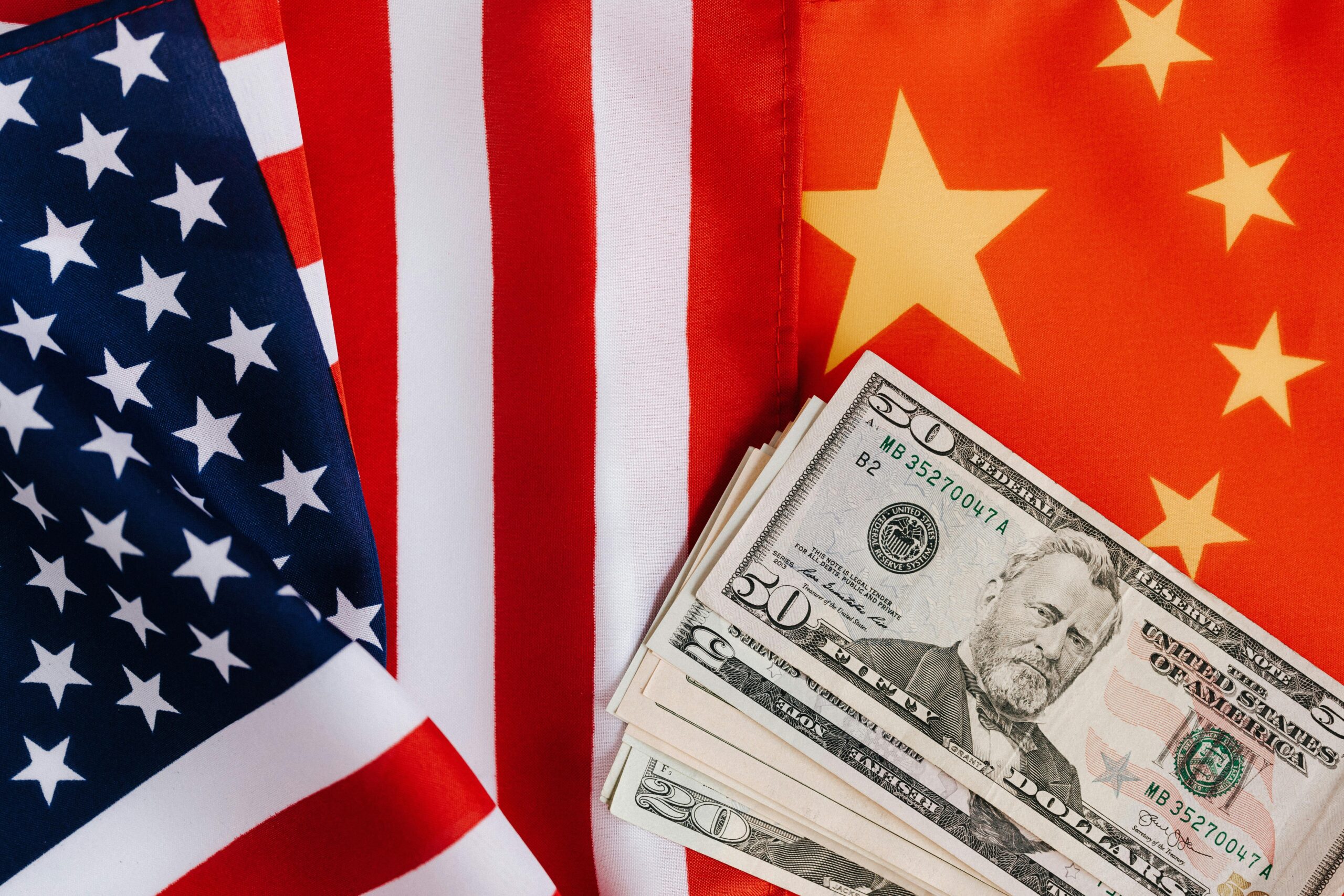 Election season is here, and one thing is clear...
Election season is here, and one thing is clear...
No matter who wins, China needs to watch out.
With election talk dominating the news, it's easy to get caught up in speculation about how the markets will react to who becomes the next U.S. president. However, the best way to play the market is based on certainty.
And as I'll explain today, no matter who wins the election... it's going to help the U.S. and hurt China.
You see, the world is reorganizing, and the U.S. is emerging as the biggest beneficiary. This is a point I recently discussed on the Beyond the Ballot podcast with Kerry Lutz, where we spent a lot of time discussing the election and China.
 Former President Donald Trump has been crystal clear about his stance on China...
Former President Donald Trump has been crystal clear about his stance on China...
If elected, he's going to keep up the trade war he started in his first term. He has already stated he will impose a minimum tariff of 60% on all Chinese goods... which could seriously hurt U.S.-China trade from China's perspective.
It would help keep American companies competitive by encouraging Americans to buy domestic products. Not to mention, Trump wants to push the corporate tax rate even lower – potentially down to 15%.
Between higher demand and lower taxes, U.S. corporate earnings could surge, and that would send the stock market higher.
Vice President Kamala Harris so far has been much quieter on her policies overall... including China. During her presidential nomination, she only mentioned China once.
That said, what she has said so far suggests that if she's elected, she plans on carrying forward a lot of policies from the Joe Biden era. For example, her stance on immigration has gotten tougher already.
President Biden has already enacted a lot of tariffs on Chinese goods. He raised the tariffs on steel and aluminum from 7.5% to 25% and electric vehicles from 25% to 100%. And the plan is to raise tariffs on semiconductors from 25% to 50%.
Eighty percent of Americans have an unfavorable opinion of China. So Harris wouldn't be doing herself any favors to walk back any of these tariffs.
Meanwhile, Harris recently announced that she will fight to increase the long-term capital-gains tax rate from 24% to 28%. That's far lower than the Biden administration's proposal that maxed out around 45%.
Stock market valuations, to an extent, are a function of inflation and tax rates. So this is a good sign that U.S. stock valuations won't falter much if Harris is elected.
 The same can't be said for China...
The same can't be said for China...
China's economy is floundering. Its real estate sector is struggling to find buyers. And higher international tariffs will put even more pressure on domestic consumers. This is already showing up in corporate credit risk.
We can use Uniform Accounting to measure companies' risk by restating credit metrics, similar to how we restate a company's financials.
We've built our own metric to identify the fair value of a company's credit risk... which we call an "intrinsic credit default swap" (or "iCDS"). Basically, it's an advanced version of the traditional CDS calculation.
The iCDS helps us understand a company's actual risk factors to determine its real borrowing cost... which is crucial for investors to decide whether it's worth investing in. If a company has an iCDS above 500 basis points ("bps"), it indicates a significant amount of credit risk.
Based on the iCDS, U.S. companies have gotten safer throughout the year. Back in January, about 4% of U.S. companies with market caps above $500 million had an iCDS above 500. Now, it's down to just 3%.
Meanwhile, over the last few years, the number of public Chinese companies with an iCDS above 500 has surged from 1.5% to more than 6%. And unlike U.S. companies, Chinese companies haven't gotten any safer this year.
 The U.S. stock market isn't just surviving – it's dominating...
The U.S. stock market isn't just surviving – it's dominating...
The U.S. stock market's capitalization is larger than the rest of the world's combined. And U.S. corporate profits, viewed through the lens of Uniform Accounting, outshine those of any other nation.
This isn't a bubble... It's a testament to the strength of American businesses.
So while market corrections may happen, they present buying opportunities. We saw this when major events like an assassination attempt on a presidential candidate and Biden exiting the presidential race caused short-term market dips. But with rising corporate earnings and strong balance sheets, the market bounced back.
In short... while China faces a looming crisis, U.S. companies are poised to lead the global market for years to come.
Wishing you love, joy, and peace,
Joel
September 6, 2024



 Election season is here, and one thing is clear...
Election season is here, and one thing is clear...

